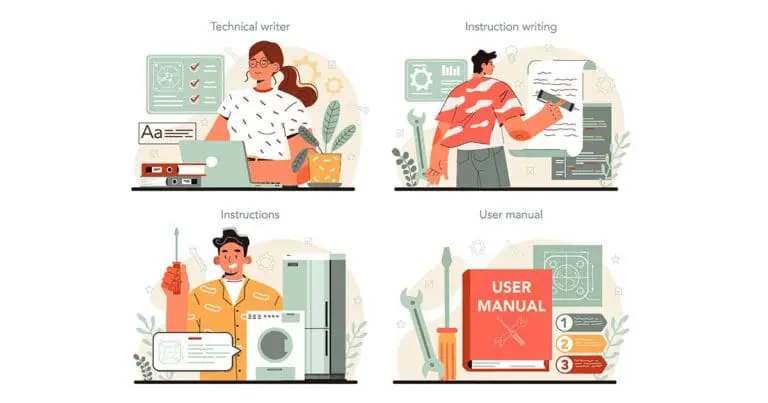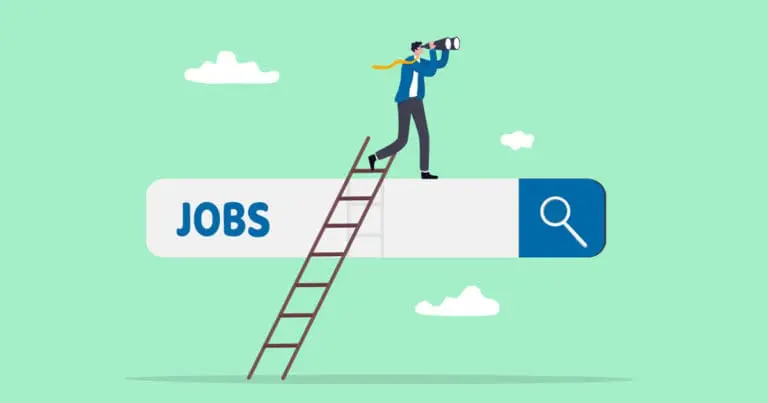The Importance of Lifelong Learning in a Fast-Paced Job Market

In today’s ever-evolving job market, staying ahead of the curve is crucial for long-term success.
According to the World Economic Forum, by 2025, nearly half of all employees will need reskilling due to the rapid evolution of job roles driven by technological advancements.
As industry trends shift and new technologies emerge, the skills required to thrive in the modern workforce are constantly changing.
This ever-changing landscape makes lifelong learning a critical strategy for remaining relevant and competitive in today’s fast-paced world.
Changing dynamics of the job market
Changing dynamics of the job market include technological advancements, globalization and competition, and industry evolution.
Technological advancements
Rapid advancements in AI, automation, and digital transformation are fundamentally altering job roles across industries.
These technological advancements not only demand new technical skills but also drive the need for continuous education to keep up with evolving technologies.
Professionals must be proactive in acquiring specialized skills to stay relevant as some jobs of today may become obsolete tomorrow.
Globalization and competition
Globalization has created a competitive job market where companies can source talent from around the world.
This global talent pool increases the demand for a more diverse and adaptable skilled workforce.
As a result, employees must enhance both their soft skills and technical skills to stand out in a global context and secure job opportunities.
Industry evolution
Industries are continuously adapting to new challenges, creating a demand for skill enhancement.
The tech industry, for example, is constantly innovating, requiring professionals to stay updated on industry trends and emerging technologies.
To remain valuable assets within their fields, professionals need to commit to ongoing professional development and stay ahead of industry changes.
The benefits of lifelong learning
Benefits of lifelong learning include skill relevance, career advancement, adaptability, and personal growth.
Skill relevance
Lifelong learning helps professionals maintain the relevance of their skill sets.
By engaging in continuous learning programs, individuals can bridge skill gaps and ensure they possess the essential skills needed in their current roles.
This ongoing process of skill acquisition is vital in a dynamic job market where the demand for certain skills can change rapidly.
Career advancement
Engaging in lifelong learning opens up new career opportunities and pathways for career advancement.
Professionals who continually update their knowledge base are more likely to be considered for promotions and challenging projects.
Continuous education not only enhances job performance but also positions individuals as top candidates for career growth.
Adaptability
In an ever-changing job market, adaptability is key.
Lifelong learning equips professionals with the problem-solving skills and critical thinking abilities needed to navigate shifts in the industry.
This proactive approach to learning ensures that individuals can quickly pivot and thrive in new or unexpected circumstances.
Personal growth
Beyond professional benefits, lifelong learning also fosters personal growth.
Engaging in ongoing education increases self-confidence, provides a sense of fulfillment, and supports cognitive health.
The pursuit of knowledge enhances both personal life and professional lives, contributing to an improved quality of life.
Examples of lifelong learning
Examples of lifelong learning include formal education, informal learning, on-the-job learning, and networking and peer learning.
Formal education
Formal education, including degree programs, certifications, and professional development programs, is a structured way to gain new knowledge.
Enrolling in these programs allows professionals to earn credentials that are recognized across industries, providing a solid foundation for career development.
Informal Learning
Informal learning includes online courses, webinars, podcasts, and self-study, offering a flexible and often more affordable way to learn.
Platforms like Coursera, Udemy, and LinkedIn Learning provide a wide range of courses that can help individuals stay current on industry trends and develop new technical skills at their own pace.
On-the-job learning
On-the-job learning through mentorship, cross-training, and practical experiences allows employees to acquire new skills within their current organization.
Engaging in mentorship programs and participating in challenging projects fosters professional growth and enhances career trajectory.
Networking and peer learning
Learning from peers through networking opportunities, industry events, and professional communities offers invaluable insights and opportunities for networking.
Engaging with like-minded individuals and industry experts enables the exchange of fresh ideas and the development of a robust professional network.
Strategies for incorporating lifelong learning
Strategies for incorporating lifelong learning include setting learning goals, leveraging online resources, creating a learning schedule, and employer-sponsored learning.
Setting learning goals
To make the most of lifelong learning, it’s essential to set realistic goals.
Identify areas where improvement is needed and create a plan to achieve specific learning goals.
This proactive approach ensures that learning is aligned with both personal development and career objectives.
Leveraging online resources
Take advantage of the wealth of resources available through online learning platforms like LinkedIn Learning and Coursera.
These platforms offer continuous learning opportunities tailored to various industries, making it easier to stay updated on industry trends and develop new skills.
Creating a learning schedule
Incorporating ongoing learning into a busy professional life requires careful time management.
Setting aside dedicated time each week for learning activities ensures that continuous education becomes a priority.
This consistent approach to learning helps professionals stay on track with their development journey.
Employer-sponsored learning
Many companies offer learning opportunities for employees through training programs, educational reimbursements, and mentorship opportunities.
Taking full advantage of these resources can significantly enhance one’s career trajectory and prepare individuals for opportunities for career advancement.
The role of employers in promoting lifelong learning
The role of employers in promoting lifelong learning involves encouraging a learning culture, providing resources, and recognizing and rewarding learning.
Encouraging a learning culture
Employers play a pivotal role in fostering a culture of continuous learning.
By promoting a work environment that values ongoing education, companies can help employees stay competitive in a fast-paced job market.
Encouraging a growth mindset within the organization supports both employee retention and company success.
Providing resources
Organizations can support lifelong learning by offering access to educational resources, such as online courses, professional development programs, and mentorship opportunities.
These resources help build a skilled workforce and ensure employees have the tools they need for career advancement.
Recognizing and rewarding learning
Incentivizing lifelong learning through recognition and rewards can motivate employees to pursue ongoing education.
Acknowledging achievements in continuous learning and offering opportunities for career growth encourages a commitment to learning and contributes to overall job satisfaction.
Continuous learning for a fast-paced job market
Lifelong learning is not just a strategy for staying competitive in the ever-changing job market; it is a lifelong commitment to both professional development and personal growth.
By embracing ongoing learning, professionals can future-proof their careers, adapt to new challenges, and achieve a sense of fulfillment.
Whether through formal education, informal learning, or on-the-job learning, the pursuit of knowledge is a powerful tool for long-term success in both personal and professional lives.
Looking for your next gig? Let us help.
Every year, Mondo helps over 2,000 candidates find jobs they love.
Continued Reading…
- How to Answer “Do You Have Any Questions for Us?” in an Interview
- 12 Mock Interview Questions to Practice Before Your Next Job Interview
- “How Do You Handle Stress and Pressure?” Sample Answers, Tips & Template
- How to Answer “Describe How You Overcame a Difficult Work Situation” in an Interview
- Can AI Write My Cover Letters? Tips and Prompts
- How to Answer “Tell Me About a Time You Failed” in an Interview w/Sample Answers
- How to Answer “Why Should We Hire You?” in an Interview With Sample Answers
- Can AI Write My Resume? Pros, Cons, Tips & Prompts
- How to Answer “Tell Me About Yourself” in an Interview With Sample Answers
- What Is a Panel Interview and How to Ace Your Next One



